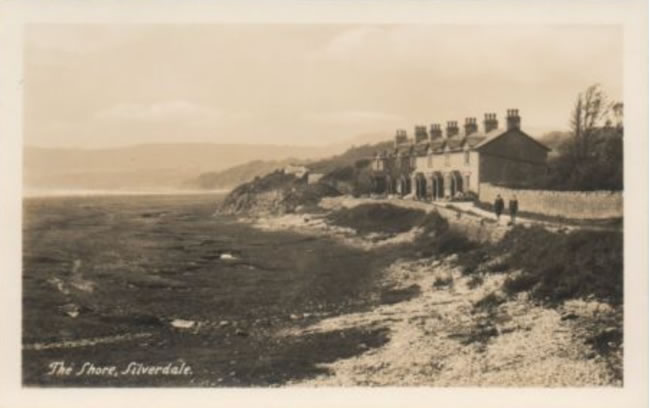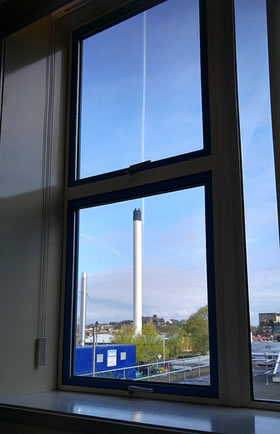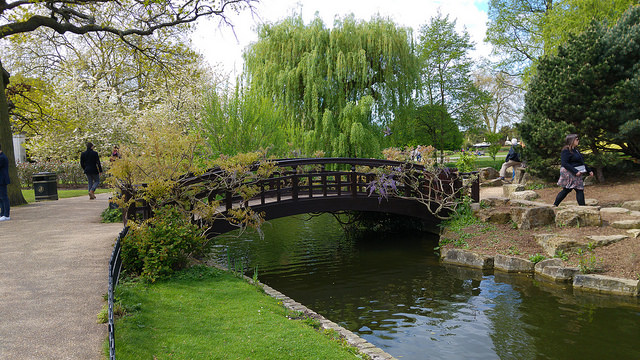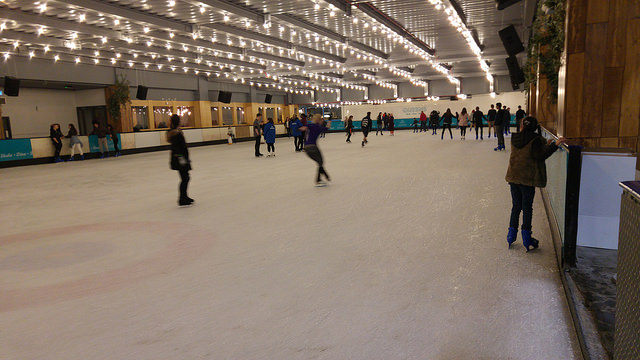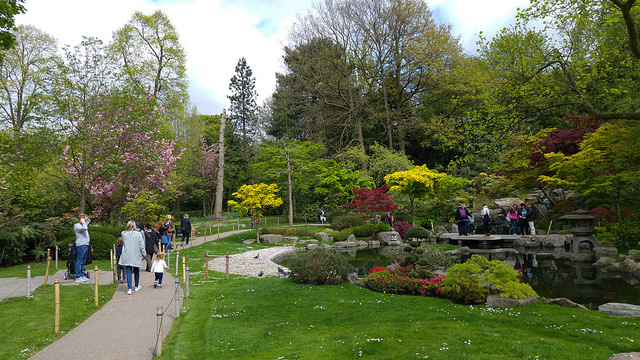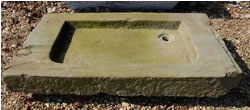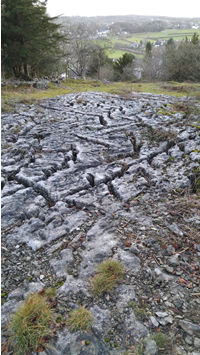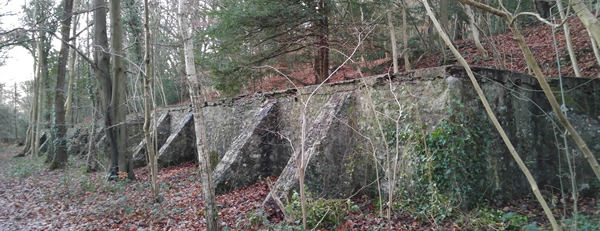I finally returned to Bangor today after nearly 3 weeks away – I was only planning to be away for 3 days, but due to the slight mishap in London (a broken ankle), my plans changed a bit.
My mum has looked after me very well, and been doing the cooking, laundry, shopping, etc. I’ll have to find ways to do those things myself back in Bangor.
Last Friday I went to the hospital in Lancaster for a check up on my broken ankle. They put a new plaster cast on it and said that it’s healing well. I can even put a bit of weight on it.The plaster is due to come off at the end of May, and I’ve arranged for this to be done in Ysbyty Gwynedd (Bangor hospital).
I was planning to go to the Polyglot Gathering in Bratislava at the end of May, but have reluctantly decided to cancel that trip. I doubt I’ll be ready for such an adventure as soon as the cast comes off, as it’s likely to take a month or so before I’m fully mobile again.
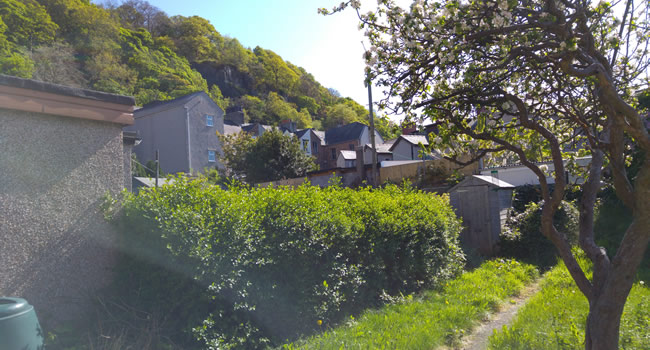
It’s a beautiful day here in Bangor, my apple tree is in bloom, and my garden went a bit wild while I was away (see photo). I’ll need help to tame it, I think.
It was great to hear some Welsh on the train on the way back – I’ve missed it.
